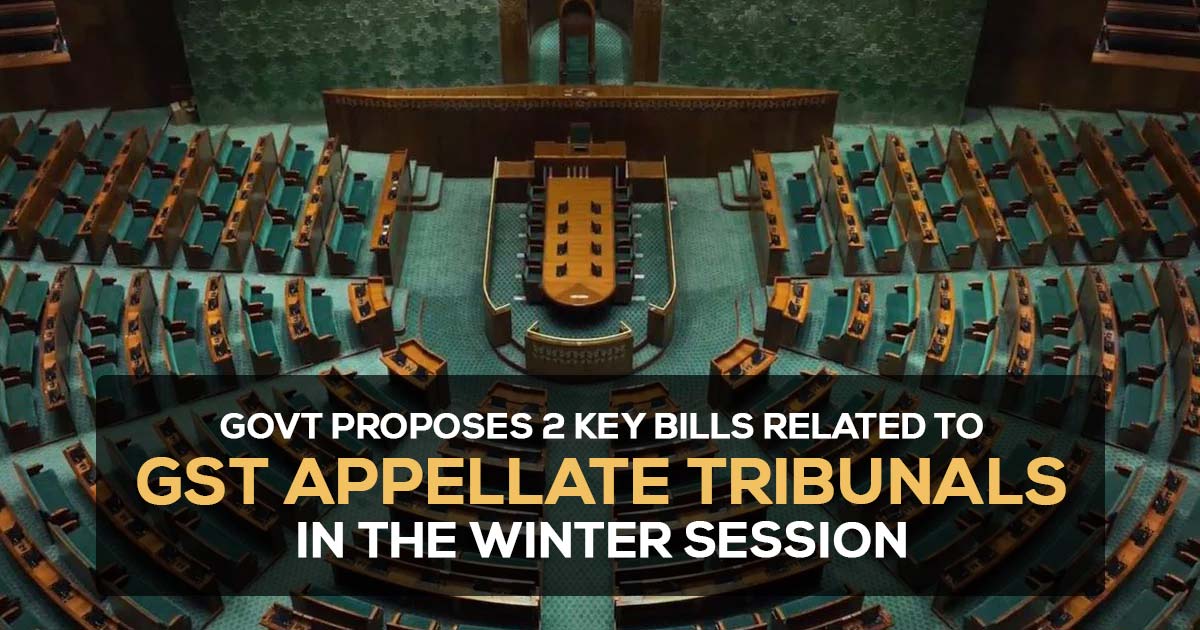
According to sources familiar with the matter, the government plans to introduce two significant bills during the approaching winter session of Parliament. These bills aim to establish goods and services tax (GST) appeals tribunals and seek approval for adjustments in the government’s spending plans.
One of the bills will propose amendments to the central GST law, allowing experienced litigation advocates to be designated in GST appellate tribunal benches as judicial members.
The age criteria for appointment will also be relaxed to facilitate the selection process, after the enactment of the bill.
Additionally, the government will present a bill asking for permission from the parliament for settlements in its ₹35 trillion spending program for the current fiscal year.
The supplementary demand for permission is expected to reallocate funds within the spending program without a significant net increase in expenditure.
The winter session of Parliament is scheduled to begin on December 4th. According to sources, the government plans to uphold the fiscal deficit target of 5.9% for the ongoing financial year. To meet the additional funding needs, particularly the subsidy for nutrient-based fertilizer, the government intends to propose a bill that reallocates savings from certain expenditure areas.
In the initial half of the financial year, approximately 96% of the originally allocated ₹44,000 crore was utilized by the government.
Official data reveals that up until September, the total expenditure on food, fertilizer, and petroleum subsidies accounted for 55% of the allocated ₹3.7 trillion for the year.
Even if the government manages to meet the additional funding requirements through savings from other categories, parliamentary approval is still necessary.
Similar: GST Impact on Petroleum Products in India
External factors are primarily responsible for the need for additional spending, as highlighted by experts.
A tax expert expressed that the government’s fiscal performance is anticipated to closely align with predictions, with any potential deviation even being insignificant.
However, the eagerly awaited modification to the Insolvency and Bankruptcy Code (IBC), which aims to point out financial issues at the corporate group level and introduce a specialized framework for the real estate sector, are unlikely to be introduced during the winter session due to ongoing discussions and finalization of proposals, according to the sources.
Currently, the IBC only provides mechanisms for debt resolution at the individual company level.
Similarly, proposed amendments to the Companies Act that aim to reform the statutory audit system may not be included in the winter session agenda.
This situation introduces uncertainty regarding the approval of these proposals within the current term of the Lok Sabha.
However, a third source familiar with government discussions indicated that work is underway on these matters.
An email seeking comments from the spokespersons of the Ministry of Finance and Corporate Affairs remained unanswered as of Thursday.
During a specialized session in September, the House approved the Constitution (One Hundred and Sixth Amendment) Act, 2023, commonly referred to as the women’s reservation law. This legislation reserves one-third of the seats in the Lok Sabha and state legislative assemblies specifically for women.
The winter session of Parliament will commence a day after the vote counting for the assembly elections in five states: Chhattisgarh, Mizoram, Madhya Pradesh, Rajasthan, and Telangana.